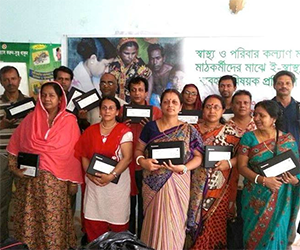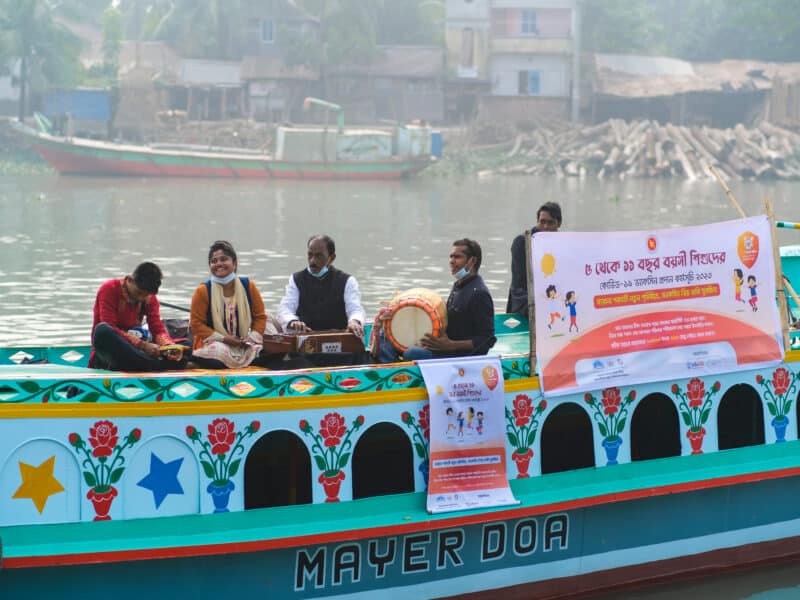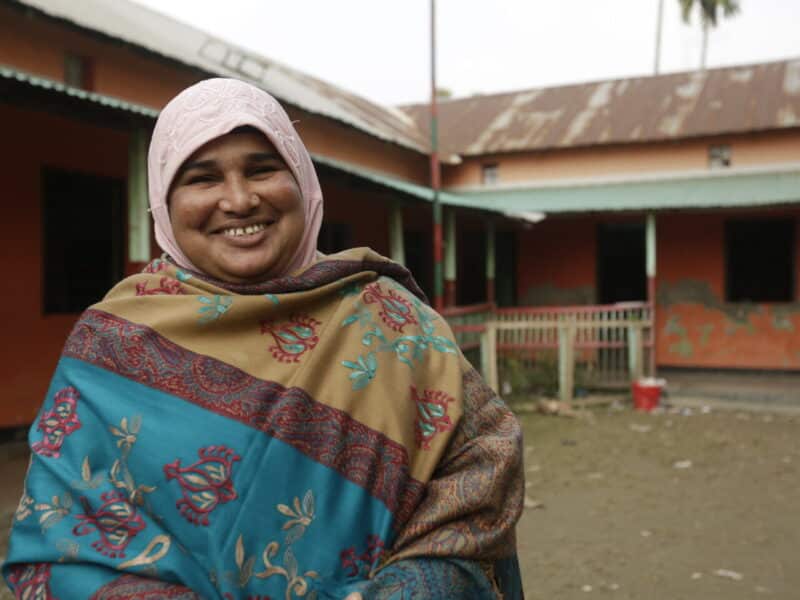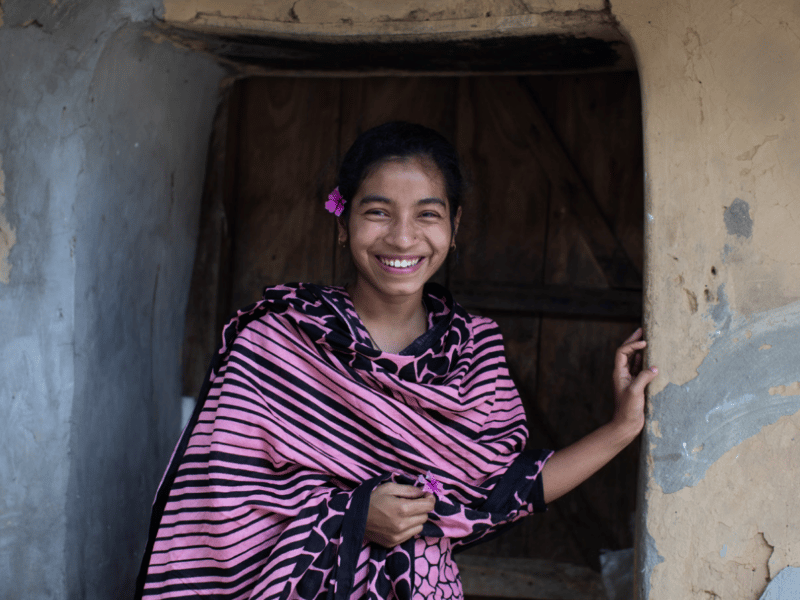Field workers in Bangladesh have greater health, population and nutrition knowledge, are better able to use this knowledge during counseling and are seeing an increased demand for information and services in their communities thanks to an eHealth pilot project that took place in Bangladesh from May to August 2013.
The eHealth Pilot was implemented by the Bangladesh Knowledge Management Initiative (BKMI) with research support from Eminence. BKMI is a USAID-funded project run by the Johns Hopkins Bloomberg School of Public Health Center for Communication Programs (JHU∙CCP) in partnership with the Bangladesh Center for Communication Programs and the Ministry of Health and Family Welfare.
BKMI created the eHealth Pilot to address Bangladesh’s poor health indicators. A lack of accurate and up-to-date information and trainings for government field workers were identified as contributors to Bangladesh’s poor indicators.
The eHealth Pilot offered an opportunity for the Government of Bangladesh to explore solutions through innovative technology. BKMI developed easy to use eToolkits, or digital libraries, and video-based eLearning courses for low literacy field workers. Three-hundred netbooks equipped with the eToolkit and video eLearning courses were distributed to field workers who worked in two of the lowest performing districts in Bangladesh, Sylhet and Chittagong. Following training by BKMI, the field workers used the digital resources on the netbooks to facilitate their usual counseling activities with mothers in households and clinics.
The results of the eHealth pilot are compelling and are summarized in the BKMI eHealth Pilot Results Summary. Some results, such as increased field worker knowledge, were expected; others, such as the field workers’ improved ability to integrate key messages during counseling, and an overall increase in demand for HPN information in communities, were more surprising.
BKMI has developed a short film to illustrate the eHealth Pilot results. The documentary, available in a full version (12 minutes) and a short version (5 minutes), explains the process, successes and challenges of the eHealth pilot. In the documentary, Rafiq and Kawsar, two field workers from Chittagong and Sylhet who participated in the eHealth pilot, discuss how they improved their knowledge and skills around family planning, maternal, newborn and child health and nutrition and began to change health behaviors in their communities.
BKMI was managed under the Knowledge for Health (K4Health) project in its first iteration, and is now managed under the Health Communication Capacity Collaborative(HC3) as BKMI II.





